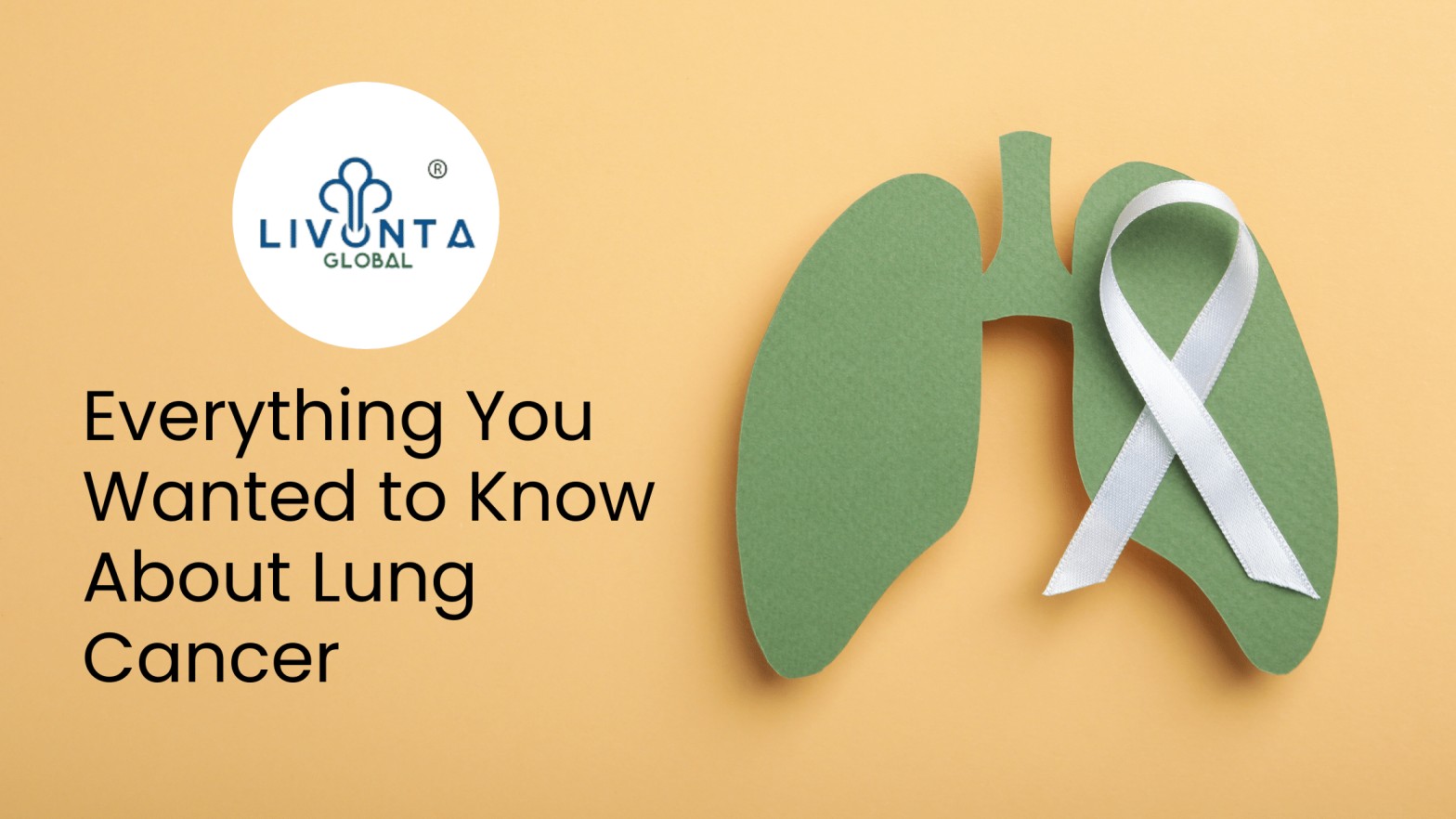
Everything You Wanted to Know About Lung Cancer
Your lungs are two spongy organs located in your chest that allow you to breathe in oxygen and exhale carbon dioxide and the cancer that starts in your lungs is called lung cancer. Typically, cancer starts in the lungs before slowly spreading to other tissues and organs such the lymph nodes, liver, and brain. After breast cancer, lung cancer is the second most frequent type of cancer worldwide. As a result, it is the leading cause of death for both men and women, accounting for almost 25% of all cancer-related deaths. If detected in the earlier stages, Cancer treatment in India could be effective and the chances of survival for the patient increases multiple times as compared to the cancer detected in later stages.
Types of Lung Cancer
- Non-small Cell Lung Cancer– Cancer starts in the cells that line the surface and cavities of your body in about 30% of these cases. Squamous cell carcinoma, giant cell carcinoma, and adenocarcinoma are the three primary subtypes of NSCLC.
- Small Cell Lung Cancer– About 15% of all instances of lung cancer are of the more aggressive SCLC variety, which develops and spreads more quickly than NSCLC.
Causes of lung cancer
Although the exact causes of lung cancer are unknown, certain activities and factors are responsible for lung cancer and you must avoid them as much as possible. These are
- Lung cancer is primarily caused by tobacco smoke. Depending on the time frame and daily cigarette consumption, the risk increases. According to studies, smoking tobacco causes death in almost 80% of cases.
- Your chance of developing lung cancer may also be increased by passive smoking or being around secondhand smoke. This means, you must avoid being around smokers as much as avoiding direct smoking.
- Exposure to carcinogenic compounds and hazardous gases, such as radon, asbestos, and other substances
- If you have a background of chest radiation therapy
- If you have a history of lung cancer in the family
Symptoms of Lung Cancer
In its early stages, lung cancer often exhibits no signs or symptoms. The signs and symptoms of Lung cancer often appear when the condition is advanced. Below are the symptoms and signs of lung cancer
- a persistent cough that doesn’t get fine
- spitting out blood, even a little bit of it
- breathing difficulty
- chest pain
- Hoarseness
- Losing weight for no reason
- Pain in the bones
- Headache
Treatment of Lung cancer
The course of treatment for lung cancer is determined by a number of variables, including your general health, medical history, cancer symptoms, and stage. Best Cancer treatment India includes Chemotherapy which is frequently used in conjunction with surgery to remove all or part of the lung during the early stages of treatment. You can be advised to undergo radiation therapy, chemotherapy, and surgery if your cancer has advanced. Chemoradiation therapy may be helpful for people with stage four lung cancer when surgery is no longer a viable treatment option. Patients with metastasized, locally advanced lung cancer are typically advised to get immunotherapy.
Lifestyle changes and chances of survival
Before choosing a course of therapy if you are given a lung cancer diagnosis, talk with your doctor about your alternatives. To reduce the symptoms, your doctor may advise supportive or palliative care before, during, or after the course of treatment. Additionally, you’ll probably be encouraged to adopt healthy lifestyle choices like stopping smoking right away and eating a balanced diet. Chances of surviving lung cancer are higher with an early diagnosis and appropriate therapy. For lung cancer, the 5-year survival rate is roughly 60%
Lung Cancer TreatmentTags: Causes of lung cancer, Lung cancer diagnosis, Lung cancer stages, lung cancer symptoms, Lung Cancer Treatment

